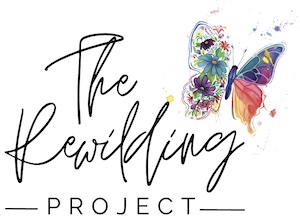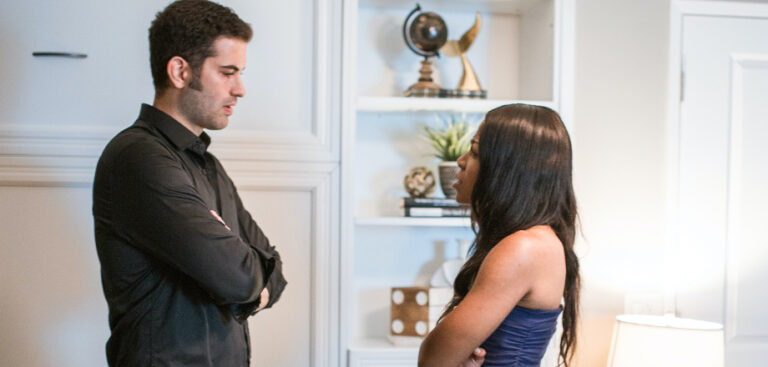Say “No” without the guilt hangover.
Picture this: The phone rings, you see the caller ID and immediately avert your eyes, pretending you didn’t see the call come in. Why? Because if you answered you know you’d be roped into doing something you don’t want to…
Sound familiar?
A particular friend of mine used to do that to me all the time! She’d ask a vague question about my plans and as soon as I’d say I was free, she’d immediately pounce on the opportunity to ask me to do something for her – whether I wanted to or not.
Since I could never figure out how to say no, after a few times getting trapped, I got smarter and started screening her calls. If she did manage to catch me directly, I’d give her a vague response about having tentative plans so she couldn’t pin me down.
The crappy part was that sometimes she was actually calling to ask me to do something fun and if I gave her the made up excuse about potentially being busy, I’d end up missing out.
Talk about a rock and a hard place!
It felt like such a crazy balancing act between not getting trapped and being honest. I didn’t know how to say “No” without feeling like a bitch. I used to get secretly mad at her and resent her for putting me on the spot… You know, instead of just dealing with the fact it was me who didn’t know how to say “No”.
This ongoing cycle left me feeling frustrated, guilty, resentful, and even a little anxious – what if she found out I was avoiding her or lying? Ugh… Overall I was totally disempowered and at a loss for what to do.
Your “yeses” mean nothing when never learned how to say “no”.
This is common in all types of relationships and it often comes up with my clients – “How do I say no?”
It’s a challenge for most people because you know you’ll feel guilty if you say no, however you also know you’ll feel resentful if you say yes. It’s quite a pickle that so many of us find ourselves in.
Since we’re creatures that generally prefer to avoid conflict, it seems like saying yes is just easier. By saying yes we avoid the uncomfortable guilty feelings so often associated with saying no. Somehow stuffing down the resentment that comes with saying yes when we don’t want to, seems easier than saying no and risking the potential conflict that could happen.
With all the people pleasing “yay-saying” having such an impact on our lives, why is it still the norm to say yes instead of saying what we mean? Why do we continue to say “Yes” when all it does is build resentment and even contempt (both relationship killers) for the person who asked us the question in the first place.
“When you say yes to keep the peace, you start a war within yourself.”
Somewhere inside all of us lies the heavy weight of learned expectations, a benchmark for behaviour determining what a good, polite, and right person would do in any given situation. Unfortunately every time your own personal wants or needs are in conflict with that benchmark, the immediate reaction is to feel guilt.
It’s these learned expectations, that you didn’t choose for yourself, that are causing the problem. They were handed down to you (inherited) from the people, places, and things that taught you your life lessons. This could include:
- Parents
- Extended family
- Teachers
- Friends
Even TV and movies can influence how you think you “should” be in this world.
For example, the expectation of being polite. In our society there are certain behaviours we’ve all agreed demonstrate politeness, and we’ve also agreed that being polite when we interact with others, is a top priority.
This societal agreement usually includes things like:
- Say please and thank-you
- Make people feel comfortable
- Don’t interrupt people, wait your turn to speak
- Never discuss money or religion in mixed company
- Chew with your mouth closed
Unfortunately, somehow being polite mutates from it’s actual definition.
The actual definition of polite is “showing good manners toward others, as in behaviour, speech, etc.” Instead of most of us using that as a standard, it gets twisted into a version of:
- For the sake of being polite what I wants and needs are don’t matter as much as keeping the peace and accommodating others so I should do what’s expected of me.”
Sadly this is only one example of how our skewed inherited beliefs blur the line between personal boundaries (what we want and need for ourselves) versus moral boundaries (that which we haven’t chosen for ourselves but have accepted as the truth and right thing to do.)
As a result, in our ongoing attempt to always do the right thing, we often end up disconnected from our own personal wants and needs.
So what’s the solution?
First you have to figure out what YOU want and need in these situations. Depending on how entwined your moral and personal boundaries are, it may be a little confusing as well as confronting at the outset.
I know… this is the part where you want to click away from the page. Because you want to believe you’ve done the work because you read the article – AND – that won’t make a difference. If you want to finally be able to say “No” with power, there’s work to do. Trust me.
It’s time for you to get to work.
You deserve to have an empowered experience of life! One where you can say yes to what you want, and the gumption to say no when you want.
Start here:
- Identify the physical feelings that occur in your body when guilt and resentment are present.
- Tense shoulders, fluttery stomach, clenched jaw, tight throat, increased heart rate, etc.
- Start to become conscious of what’s happening around you when these physical feelings start.
- Did someone ask you to do something?
- Do you feeling obligated to do something?
- Is there an expectation placed on you that you don’t like?
- Ask yourself: “In an ideal world, what would I want to happen right now?” and pay attention to the answers your internal voice gives you.
- This will give you an idea of what YOU want and need rather than what your moral benchmark dictates should happen.
- Next ask yourself: “What’s stopping me from saying or doing that?”
- Are you worried about what someone will think of you?
- Is there a chance of conflict if you say no?
- Notice any trends or common themes that show up.
I always recommend journaling about this kind of thing. Writing it down makes it easier to track trends and common themes over time. It allows you hear the internal dialogue and get your more insightful information this way.
This stuff is never easy. Taking the time and putting in the effort to make your life better is a challenge. You deserve to have the results of taking on that challenge. You deserve to feel powerful and free in your life.
Nothing changes if nothing changes!
Learning to say “no” or in other words STOP SELF-ABANDONING, can be a really tricky skill to develop. Especially if you’ve been raised in an environment that promoted going with the flow above everything else. It’s worth the effort if you want peace of mind and the experience of living YOUR life on YOUR TERMS.







